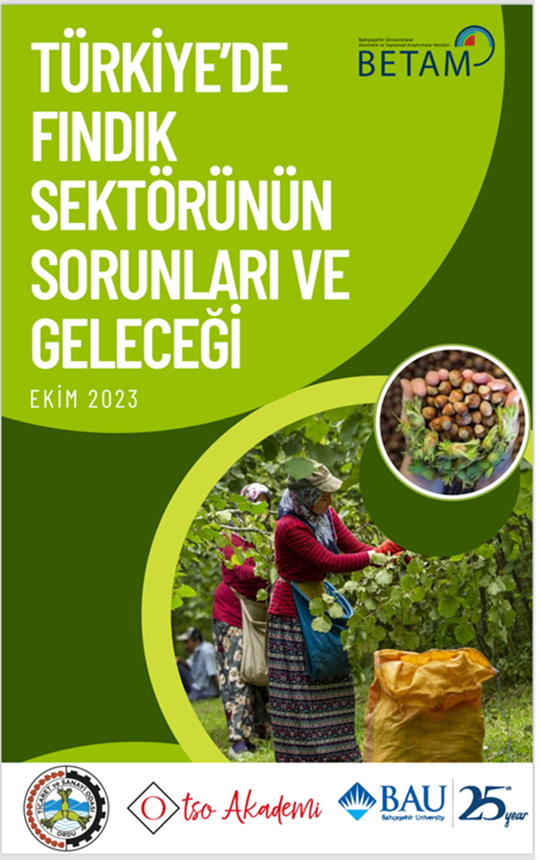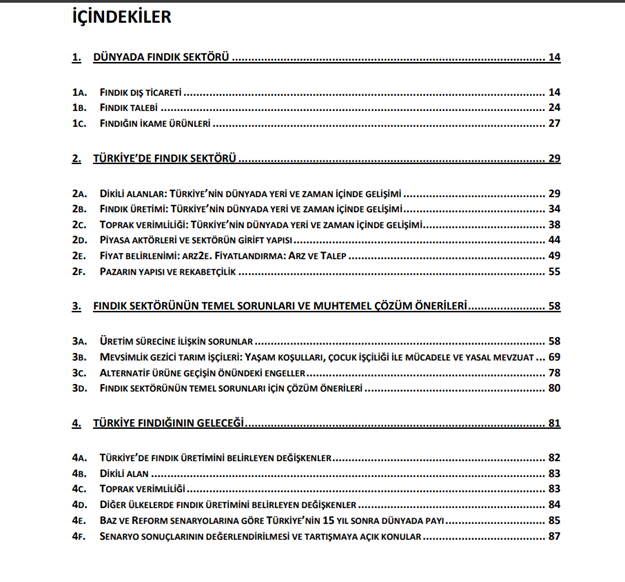Bahçeşehir University (BAU) undertakes policy-focused research in collaboration with government bodies at the national and local levels, producing evidence-based recommendations for public institutions. These collaborations demonstrate BAU’s institutional commitment to supporting sustainable governance and data-driven policymaking.
The following section presents selected examples of policy-focused initiatives and research activities carried out in cooperation with government departments at Bahçeşehir University.
1.Istanbul Labor Market and Women’s Employment: A Collaborative Research Report by Bahçeşehir University, the Istanbul Metropolitan Municipality (İBB), and İSPER
Bahçeşehir University (BAU) undertakes policy-focused research in collaboration with government departments and local authorities to support evidence-based public decision-making.
This Istanbul Labor Market and Women’s Employment report was prepared jointly with Bahcesehir University, University’s Center for Economic and Social Research (BETAM) and Istanbul Metropolitan Municipality (İBB), addressing socio-economic and labour market challenges. The collaboration involved academic research teams and public officials working together to produce policy recommendations and applied analyses for government use.
As in previous years, the 2024 report analyzes the distinctive dynamics of Istanbul’s labor market compared to Turkey as a whole, using field survey data and in-depth interviews with company representatives.
The 2024 research report introduces a new analytical focus on gender equality and women’s participation in the workforce, dedicating an entire section to the challenges women face in employment and the workplace. This addition marks a significant step toward advancing inclusive labor policy dialogue at the metropolitan level.
The findings reveal that Istanbul, accounting for nearly one-quarter of Türkiye’s total employment, exhibits a higher employment rate (51.8%) than the national average (44.4%), for both men and women. Women’s employment in Istanbul (34.8%) surpasses the national level (27%), and the female unemployment rate (11.7%) is notably lower than the national non-agricultural average (15.1%). However, long-term unemployment remains high—particularly among women, individuals over 45, and those with lower education levels—while informal employment persists in certain industrial and construction sectors.
The study highlights key gender-based findings:
Marriage and motherhood significantly reduce women’s participation in the workforce. Employment rates decline by 11% after marriage and by an additional 7% after the first child, with the impact particularly severe among women with lower educational attainment. The report also documents stark inequalities in unpaid household labor—women perform 75% of domestic tasks, while men contribute only 25%, even in dual-income households.
Other structural challenges include skills mismatches, labor shortages in low-skilled occupations, and rising reservation wages due to high living costs in Istanbul. Employers report persistent difficulty in recruiting qualified workers, high turnover rates, and ongoing issues of informal employment, especially among migrant workers.
The report proposes policy recommendations such as promoting childcare access, expanding formal employment opportunities for women, improving job security, and considering regionally differentiated minimum wage models to reflect Istanbul’s higher cost of living. It also advocates for enhanced cooperation between the public and private sectors to improve working conditions and attract younger generations to the labor market.
Through this comprehensive research, Bahcesehir University, İSPER and Istanbul Metropolitan Municipality contribute to evidence-based labor market policymaking, promoting gender equality, sustainable employment, and inclusive economic growth. The study supports SDG 5 (Gender Equality), SDG 8 (Decent Work and Economic Growth), and SDG 11 (Sustainable Cities and Communities) by advancing data-driven solutions for a fairer and more resilient urban economy.
The images below illustrate the cover page, team acknowledgements, and table of contents sections of this policy-focused research report jointly prepared by Bahçeşehir University and government bodies.
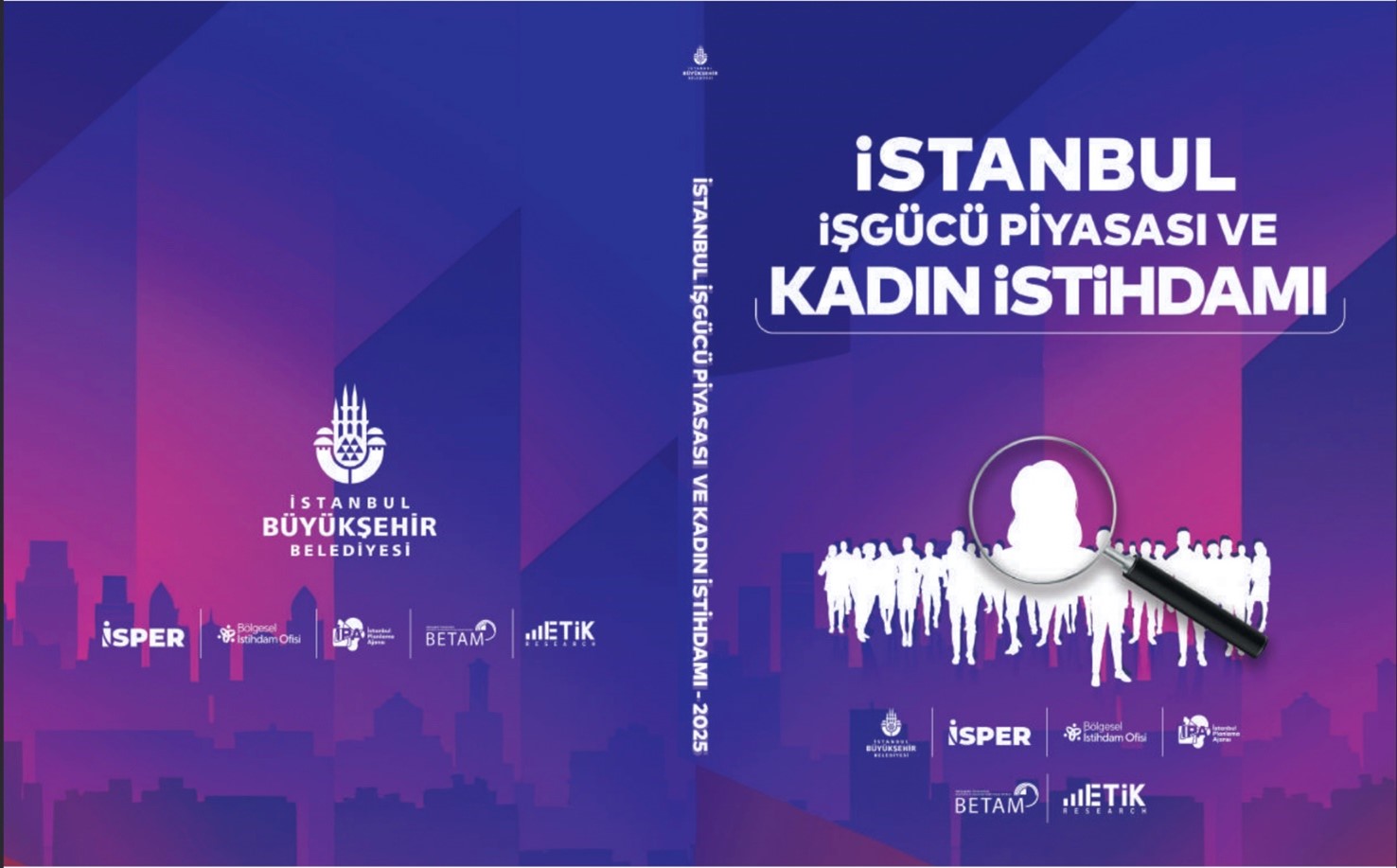
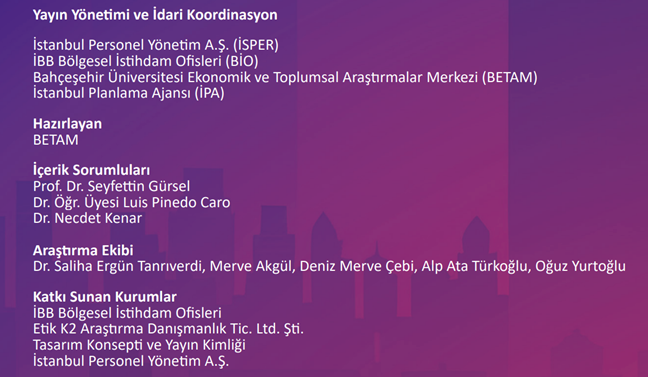
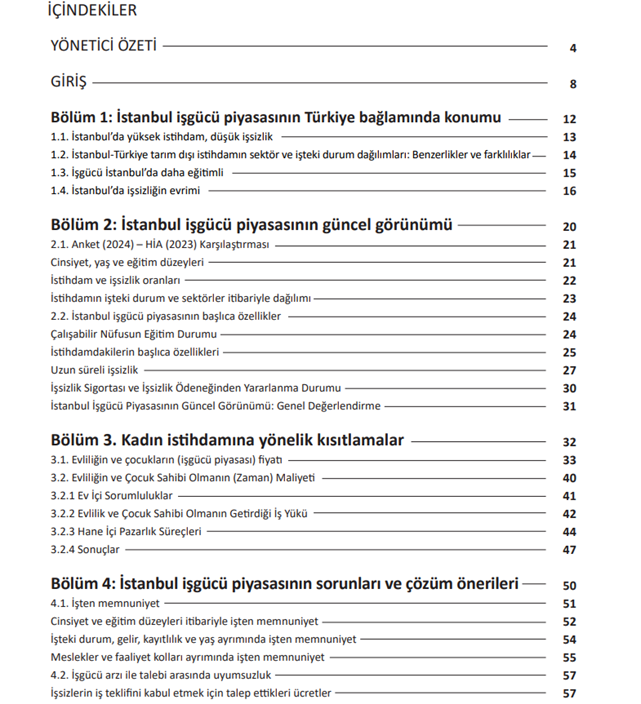
2.Istanbul Labor Market: Structural Characteristics and Problems: A Collaborative Research Report by Bahçeşehir University, the Istanbul Metropolitan Municipality (İBB), and the Istanbul Planning Agency (İPA)
In the 2023–2024 academic year, Bahcesehir University (BAU), BAU Center for Economic and Social Research (BETAM), Istanbul Metropolitan Municipality (İBB), Istanbul Planning Agency (İPA), and Regional Employment Office published the “Istanbul Labor Market: Structural Characteristics and Problems” research report, prepared in collaboration governtmet bodies.
BAU research teams worked with public officials to develop policy recommendations improving job placement systems and local employment strategies. The final report was shared with government departments to support evidence-based policy design in employment and social inclusion.
This research represents one of the many initiatives through which Bahçeşehir University contributes to evidence-based policymaking by supporting local and national governments through academic expertise, research, analysis, and policy recommendations. The report received wide attention from relevant stakeholders, policy experts, and media outlets, underscoring its significance in guiding local labor market policies.
The study provides an in-depth analysis of the current state and challenges of Istanbul’s labor market, combining quantitative and qualitative data.
A comprehensive field study was conducted in October 2023, including a labor force survey implemented in partnership with Remind and BETAM, and interviews with company managers carried out jointly by BETAM and İBB Regional Employment Offices.
The report is structured into three main sections:
Through this project, Bahçeşehir University reaffirms its role as a leading academic partner in local governance and policy research, supporting SDG 8 (Decent Work and Economic Growth) and SDG 11 (Sustainable Cities and Communities) by promoting inclusive, data-driven strategies for urban development and employment policy.
The images below illustrate the cover pages, team acknowledgements, and table of contents sections of this policy-focused research report jointly prepared by Bahçeşehir University and government bodies (Istanbul Metropolitan Municipality (İBB), Istanbul Planning Agency (İPA), and Regional Employment Office)
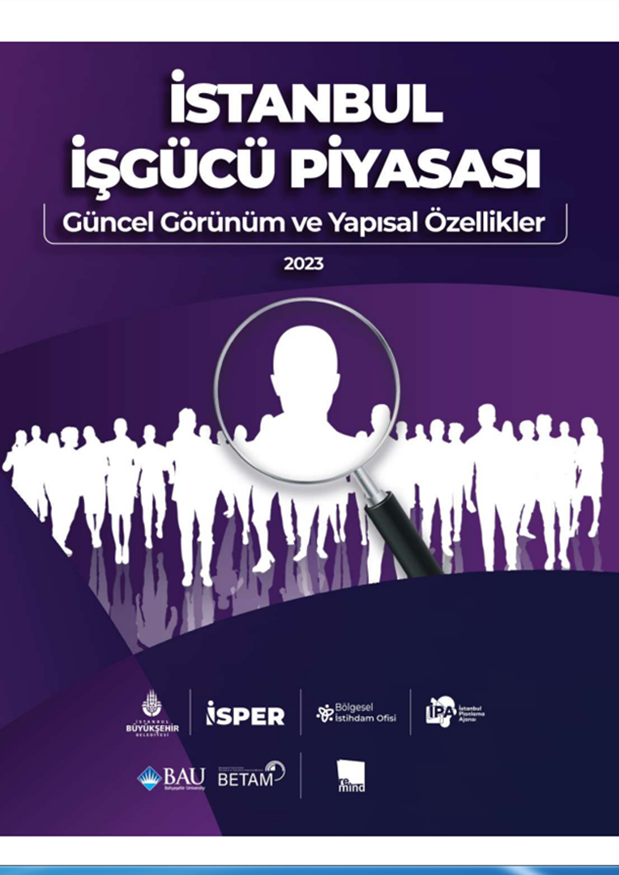
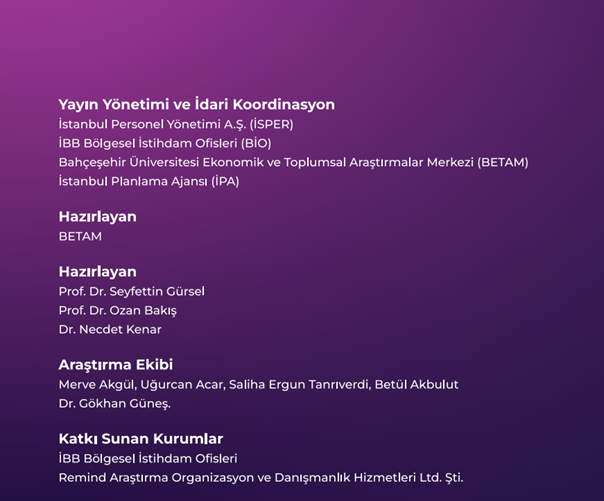
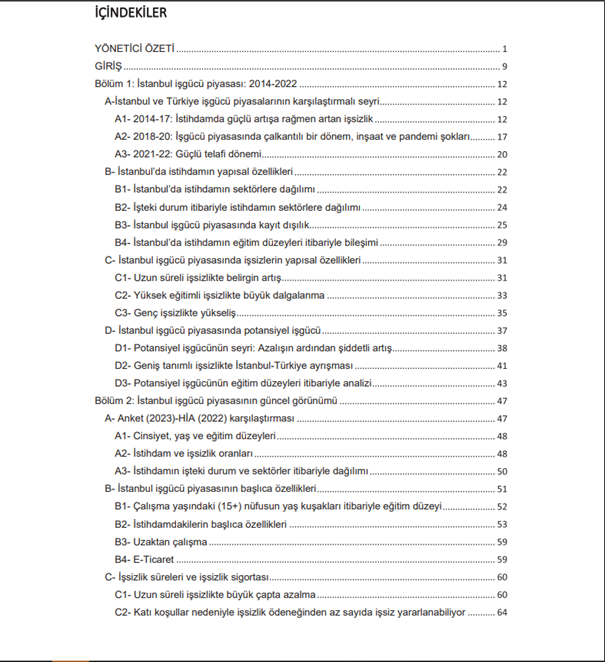
3.The Hazelnut Farming: Economic, Environmental, and Geopolitical Challenges and Future Scenarios – A Collaborative Research Report by Bahçeşehir University, the Ordu Chamber of Commerce and Industry, and OTSO Academy
In the 2023–2024 academic year, Bahcesehir – Bahcesehir - University conducted a joint policy focused research project with the Ordu Chamber of Commerce and Industry and OTSO Academy, resulting in the publication of the report titled “The Future and Problems of the Hazelnut Sector in Türkiye.”
This joint study between Bahçeşehir University and the regional Chamber of Commerce and Agriculture Directorate focused on the hazelnut sector and regional value chains. The research generated policy-oriented analyses addressing fair income distribution, sustainable production, and market competitiveness.
Findings were presented to local policymakers, contributing to public decision-making in rural development and agricultural planning.
The report offers a comprehensive and data-driven analysis of Türkiye’s hazelnut sector—one of the country’s most significant agricultural and export industries. It examines the economic, environmental, and geopolitical challenges affecting hazelnut production and trade, and evaluates future scenarios for ensuring sustainability and competitiveness.
While Türkiye remains the world’s largest hazelnut producer and exporter, the study identifies major structural issues, including low productivity, market volatility, and price instability. It emphasizes the urgent need for technological modernization, improved agricultural practices, and strategic market reforms to secure long-term sectoral resilience.
The research further explores the influence of global demand fluctuations, climate change, policy needs and international trade dynamics on the hazelnut industry. It stresses the importance of public–private cooperation, investment in R&D, and capacity-building initiatives to strengthen local producers’ adaptation to evolving market and environmental conditions.
By presenting actionable policy recommendations, the report aims to contribute to the formulation of sustainable agricultural strategies and policies that protect farmers’ livelihoods while reinforcing Türkiye’s global leadership in hazelnut production.
Through this collaboration, Bahhesehir University – Bahçeşehir - continues to bridge academic expertise with local economic development, advancing SDG 2 (Zero Hunger), SDG 8 (Decent Work and Economic Growth), and SDG 12 (Responsible Consumption and Production) by supporting sustainable and inclusive agricultural policy-making.
The images below illustrate the cover page, team acknowledgements, and table of contents sections of this policy-focused research report jointly prepared by Bahçeşehir University and government bodies.
